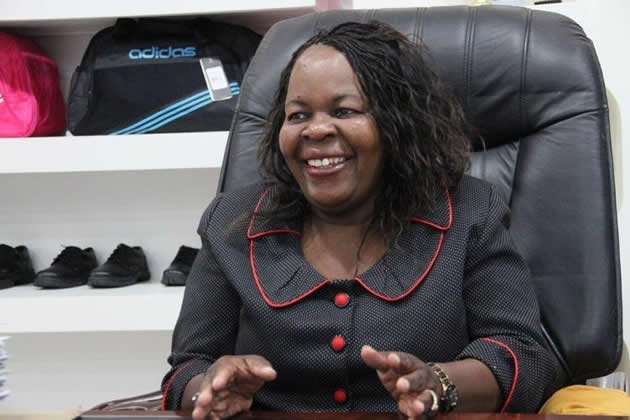Econet Wireless blunders on infrastructure sharing
Tonderai Rutsito
Econet’s unwilling to give away their infrastructure competitive advantage which is currently making them dominate with a whopping 70 percent of market share, could turn out to be a huge blunder.
By pulling out of the infrastructure sharing negotiations Econet will lose out on having their contributions included in the national framework.
While liquid Telecom may also have pulled out, the conditions will likely turn out to be different as Econet Wireless’ competitive advantage can easily be eroded should NetOne and Telecel agree to share infrastructure.
The complexities of sharing infrastructure for Mobile Network Operators, (MNOs) are quite different from those of Internet Access Providers (IAP), and the Government should not use the same approach on these separate issues.
While it is logically and financially imprudent to have all MNO’s installing base stations in the same area especially in the remote areas, it would be folly to discourage independent IAPs to do the same.
While it could be seen as a waste of resources on the part of MNO, for IAPs it’s the best way forward since data channels redundancy is the core of any network.
If there is a network break like what once happened with Liquid link in Musina, South Africa then there is a risk that the whole country would be cut off from the rest of the world.
Liquid Telecom still has a major advantage of fibre spawning across continents and they may honestly have no will power to share and nothing to lose should they remain independent but on ground, at a certain point in time, every player is already sharing infrastructure one way or the other.
Information Communication Technology, Postal and Courier Services Minister Supa Mandiwanzira was naturally not happy with the witdrawal.
Speaking during an interview on ZiFM, Minister Mandiwanzira charged that Econet Wireless and Liquid telecom were under orders from London to pull out of the discussions.
“Econet had negotiated well all the way and Government was not laying the rules but allowed all the players to negotiate, what then shocked me was that Econet and Liquid all said that they were willing to discuss best ways to share, but unfortunately their shareholder from London gave them a directive to stop the negotiations,” he said.
When contacted for a comment Econet Wireless group media advisor Mr Sure Kamhunga said they will not be commenting on the matter or explain their move.
Earlier on, Econet Wireless Zimbabwe had issued a public statement expressing their reservations towards the methodology of the whole process
“Econet is an indigenous company with a large shareholder base that includes most pensioners through the National Social Security Authority, Old Mutual and many other pension funds. Our share register has thousands of shareholders who all made painful sacrifices to invest in this infrastructure.
“The tone that the current debate on infrastructure sharing has taken appears aimed at compelling Econet Wireless to make its infrastructure available for the use of others who chose other investment priorities.
We would be betraying the Government of Zimbabwe and thousands of pensioners and other shareholders who chose to forgo dividends in order for us to develop our infrastructure.
Therefore, the type of infrastructure sharing under debate is not feasible. It is a disguised, unconstitutional form of compulsory acquisition of our infrastructure.”
Ironically, Government did not any point spell out how infrastructure was to be shared but asked operators to negotiate the best way forward, meaning that Econet was not being ordered to give away its investment away on a silver platter but rather given a platform to debate and offer their own proposition.
The minister has already indicated that by November this year there should be a framework in place for sharing passive infrastructure, like towers, base station, fibre and generators before they look into the complexities of active infrastructure that includes actual data throughput transmitted in the passive infrastructure.
The minister is advocating for infrastructure sharing which is meant to see capital costs running between 30-40 percent.
Econet is not willing to give away their infrastructure competitive advantage which is currently making them dominate with a whopping 70 percent of market share, but Government says it needs a framework that protects those who have already invested.
The major problem with such a move is that we have allowed a system where players have infrastructural advantage over others and they are not competing in services but mere coverage.
In most developed countries, all operators have agreed to share their infrastructure and they are now competing on services not infrastructure.
The sharing of both passive and active infrastructure is likely to see Telecel and NetOne gaining close to 90 percent coverage especially considering that NetOne is already rolling out their 4G network this will be an added advantage.
Econet Wireless, which is on 3G based base stations, should be considering the offer since NetOne has already covered ground with its 4G while they have not covered much with less than 30 percent coverage nationwide.
Government is the one that should be more worried because the future is no longer on basic GSM or 3G network, it’s all going to be IP based and players like NetOne have already bought the expensive frequency and have on-going loans to capacitate, which Econet should start eyeing not opposing.
- The writer is the editor for TechnoMag, Zimbabwe’s Premiere Technology Magazine More In depth from www.technomag.co.zw follow us on our social platforms Twitter: @TechnoMagZw, Facebook: www.facebook.com/technomagzw








Comments